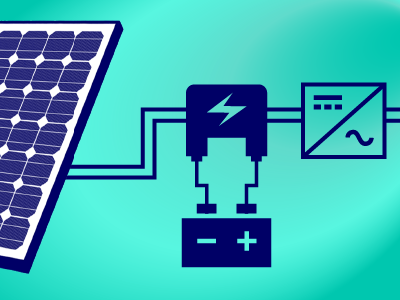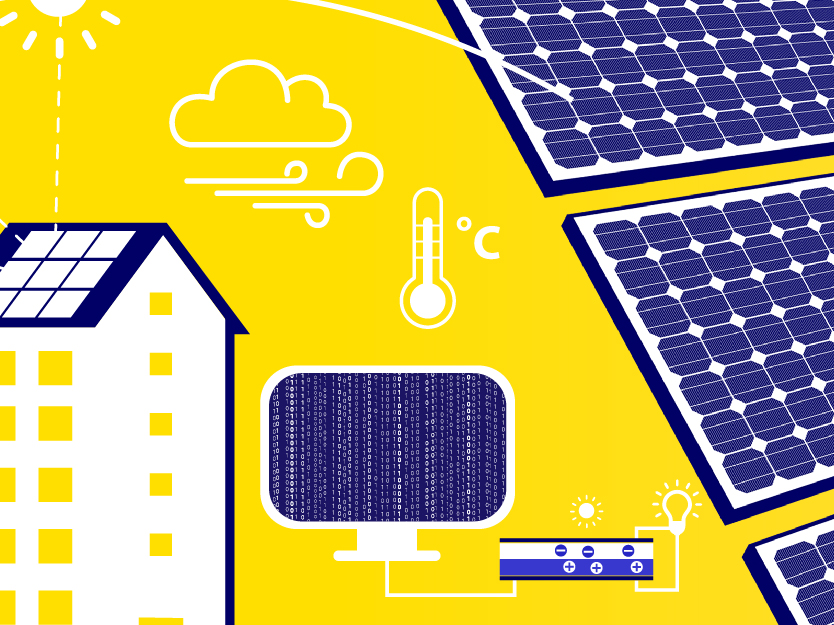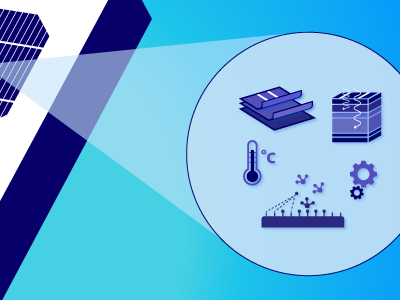Overview
Note: This course can be started until 10 December 2023, and it will be closed for all participants on 20 December 2023. Please note that all assignments should be submitted before the end date in order to obtain the certificate.
Experience the characteristics and operation of the light, solar cells, and photovoltaic modules.
This course provides you with practical experience with solar cells and modules. If you are familiar with the physical properties of light, the theory of solar cells and the influence of temperature and shade on the performance of photovoltaic modules, in this course you will see – in real time – how these characteristics and factors affect the operation of a photovoltaic system.
You will gain this practical experience in a virtual lab environment, in which you will conduct experiments. This course includes 3 parts focusing on light, solar cells, and photovoltaic modules:
Part 1 – Light
You will investigate the physical properties of both sunlight and artificial light.
Part 2 – Solar cells
You will build and calibrate two setups: 1) a current-voltage measurement setup and 2) an external quantum efficiency measurement setup. Through these setups you will measure the characteristics of solar cells, including electric performance and optical response.
Part 3 – Photovoltaic modules
You will investigate the effect of temperature and shading on the performance of different photovoltaic module technologies.
(read more about each part in the "details" tab)
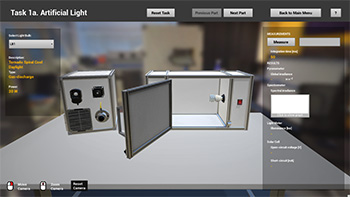
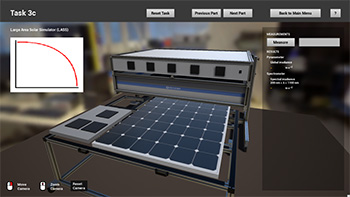
This course is part of the Virtual Lab: Photovoltaic Conversion, Systems and Components program. This program offers PV professionals the opportunity to enrich their understanding of PV theory and best practices through practical work. It also suits engineers new to the industry who seek a more "hands on" experience with solar equipment, and so gain a more pragmatic understanding of their work.
Package price - the full professional certificate program consisting of two courses: € 650 (saving € 140). Read more.
About the PVMD group at TU Delft
The Photovoltaic Materials and Devices (PVMD) group has more than twenty years' experience in the field of PV device characterization and modelling. The group has earned its academic reputation through the significant number of publications on the topic, authored by all the instructors of this online course. The group has been in direct contact with leading firms in the solar energy sector all over the world and continuously contributes to further advancement in the field. Specifically, the group contributes to the optimization of thin-film and wafer-based silicon solar cells, the development of novel concepts using nano-structured materials for future high-efficient solar cells, the demonstration of smart modules and PV-power multi-functional building elements, and the energy yield modelling of X-Integrated PV systems.
What You'll Learn:
After conducting experiments in this course, you will be able to:
- Characterize and explain the physical properties of both sunlight and artificial light;
- Build measurement setups and use them to characterize the performance of solar cells;
- Experience and explain the effect of temperature and shading on the performance of photovoltaic modules in real-life scenarios.
Details
Course Syllabus:
Part 1: Light
Characterize and explain the physical properties of both sunlight and artificial light.
In the first two weeks of the course, you will learn the different characteristics of artificial light and sunlight. You will experiment with:
- Different artificial light source technologies (incandescent bulbs, gas-discharge bulbs, LEDs);
- Artificial light with varying colors;
- Solar simulators based on artificial light sources;
- The effects of tilt and orientation of the receiver on the properties of sunlight.
Part 2: Solar cells
Measure the performance of solar cells, in particular (illuminated) current-voltage characteristic and quantum efficiency.
In the middle two weeks of the course, you will measure the performance of solar cells, to determine their characteristics. You will carry out the following two tasks:
- First, you will build and calibrate a current-voltage measurement setup, and then use it to characterize the electric performance of solar cells;
- Then, you will build and calibrate an external quantum efficiency measurement setup, and then use it to determine the optical response of solar cells.
Part 3: Photovoltaic modules
Explain the effect of temperature and shading on the performance of photovoltaic modules.
In the last two weeks of the course, you will investigate the effects of temperature and shading on the operation of photovoltaic modules. You will:
- Determine the performance of different photovoltaic module technologies in standard test conditions;
- Analyze the effect of increasing the operational temperature on the performance of different photovoltaic module technologies;
- Study the effect of different shading patterns on the power output of different module technologies.
Qualifications
Certificates
If you successfully complete this course you will earn a professional education certificate and you are eligible to receive 3.0 Continuing Education Units (CEUs).
Admission
This course is primarily geared towards working professionals.
Prerequisites
To successfully complete this course, learners must know the basic operation principles of solar cells and of photovoltaic modules. If you seek a refresher course that will help you prepare for this course, you may want to review the content of the following free online courses offered by TU Delft:
Contact
If you have any questions about this course or the TU Delft online learning environment, please visit our Help & Support page.


